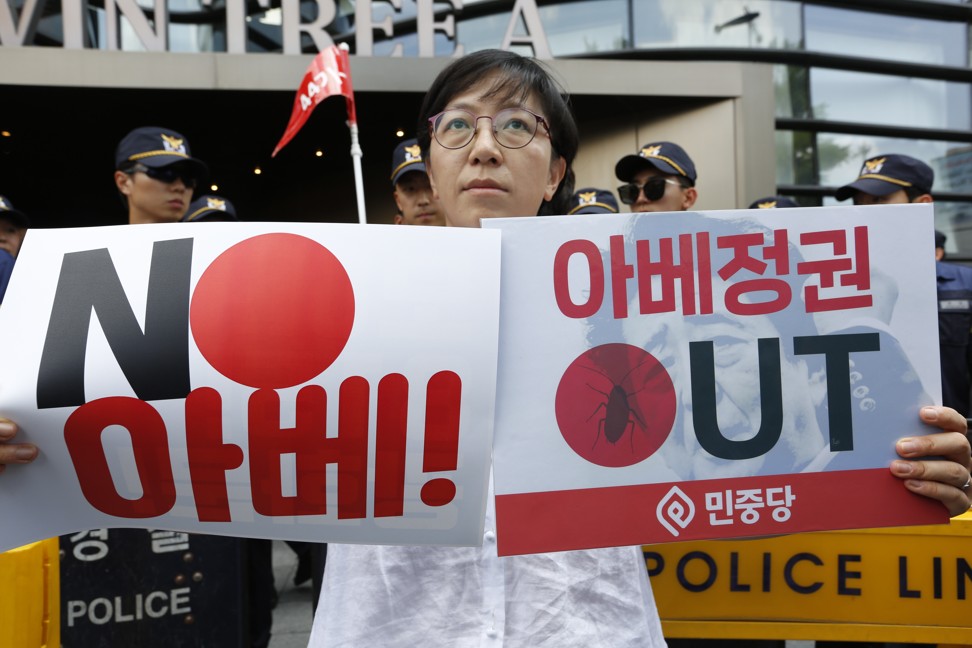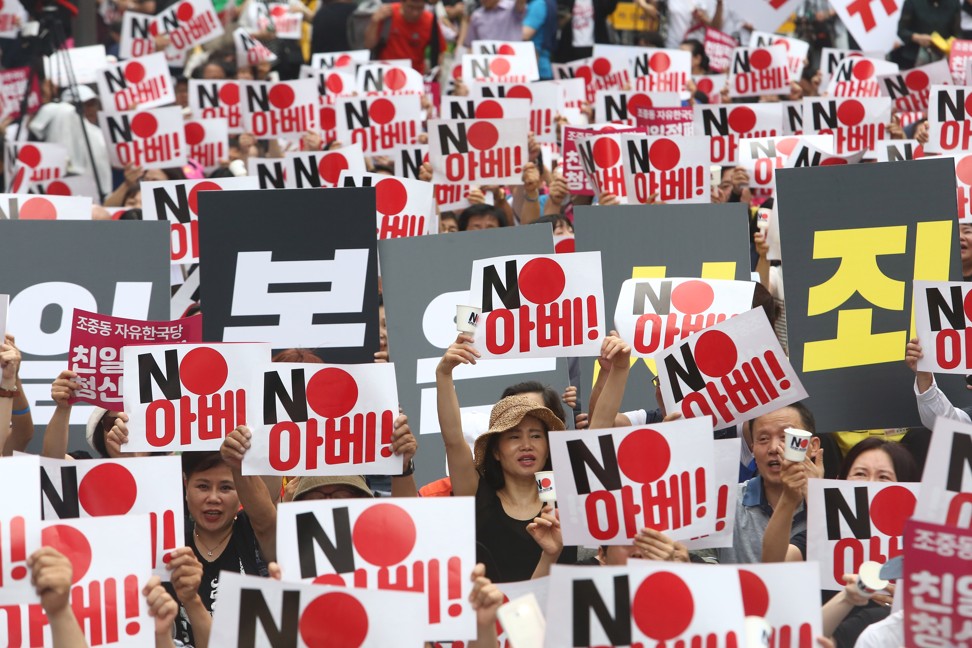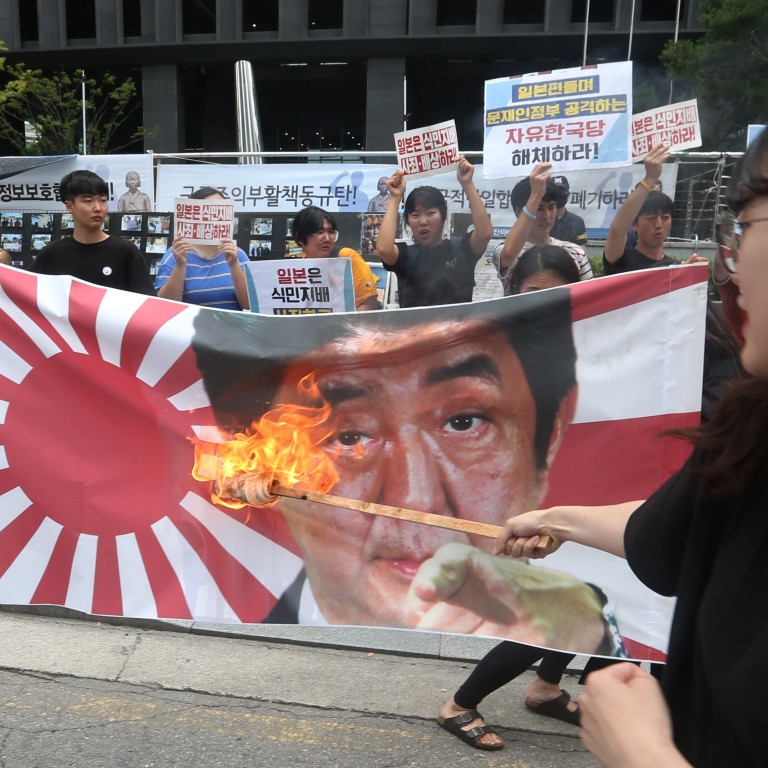
Seoul axes Tokyo from trusted export list in tit-for-tat move as angry South Koreans wage anti-Abe protests
- South Korea is the first country to be dropped from Japan’s list of nations granted minimal constraints on exports of products
- Seoul is working to bring the escalating trade row to the World Trade Organisation and has hinted at imposing restrictions on Japanese food imports and trips to Japan
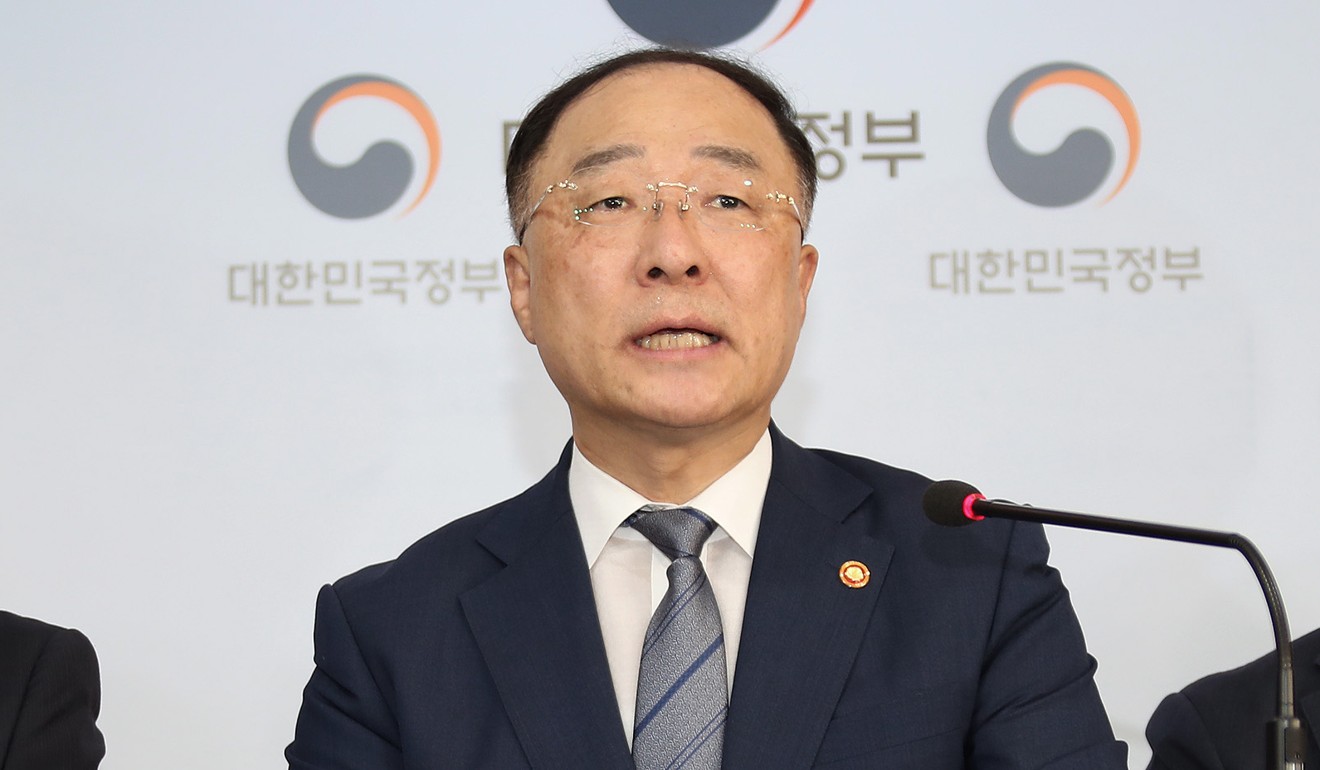
The South Korean government will also step up preparations to bring the trade row, sparked by a dispute over wartime forced labour, to the World Trade Organisation (WTO), Hong said.
The minister said Japan’s strengthened export controls could affect nearly 1,200 items deemed as sensitive, and that Seoul would closely manage and assist the imports of 159 items where South Korean firms are most reliant on Japanese makers.
South Korea’s vice foreign minister Cho Sei-young summoned the Japanese ambassador, telling Yasumasa Nagamine that Japan’s trade measures betrayed a history of bilateral cooperation.
Korean Air to suspend Busan-Sapporo flights as trade row deepens
Seven million South Koreans visit Japan annually, while only two million Japanese visited South Korea last year, giving Japan a travel balance surplus of more than US$3 billion.
Seoul last year exported US$30.7 billion worth of goods and imported US$54.6 billion, resulting in a US$24 billion trade deficit.
Japan ranked third in terms of South Korea’s imports, accounting for 10.2 per cent of its total imports, behind China with 19.9 per cent and the US with 11 per cent, official statistics showed.
Go Myong-Hyun, research fellow at the Asan Institute for Policy Studies, said: “The removal of Japan from its own white list could backfire upon South Korea by hindering South Korea’s exports to Japan.
“Japan could find alternative suppliers to replace South Korean exporters more readily than South Korea does to replace Japanese,” he said.
Go also said the South Korean government should not attempt to fan the ongoing boycott campaigns led by NGOs as it would only cause friction in the international community.
Japanese cars ‘kimchi slapped’ in South Korea amid trade tensions
Credit rating agency Moody’s on Friday said Tokyo’s decision to axe Seoul from its white list was credit negative for South Korea’s industrial firms, but “unless the restriction escalates to an effective export ban”, the impact would be for the short term.
“Moody’s expects the effect on companies’ operations will be temporary and modest, if the export controls merely result in administrative delays in input supply,” it said.
It did not believe Japan would continue to ramp up restrictions due to the close linkages between manufacturers from both sides, and the impact such action would have on global supply chains.
But in the event of an escalation, Moody’s said South Korea’s semiconductor, display and smartphone manufacturing sectors could face material production disruptions due to supply challenges.
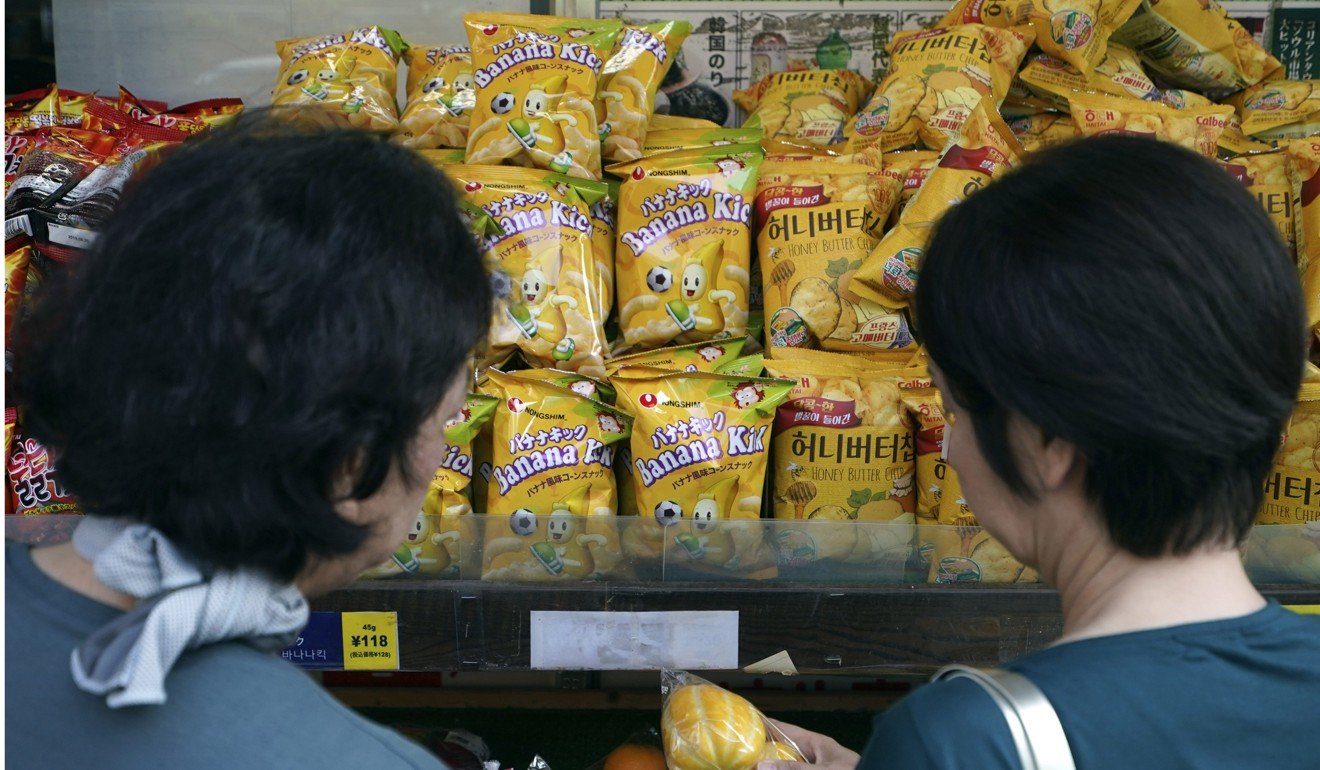
“This is a very reckless decision that ignores diplomatic efforts to resolve the problem and further exacerbates the situation. I, as President of South Korea, express deep and profound regret,” Moon said at the start of a televised Cabinet meeting.
“As we have already warned many times, if Japan intentionally strikes at our economy, Japan should take responsibility for any setbacks.”
The President accused Japan of abusing its leverage in trade to punish Seoul over a long-time historical dispute, pointing to Tokyo’s refusal to accept the US suggestion to place a hold on any actions and engage in dialogue.
“South Korea will absolutely take corresponding measures regarding Tokyo’s economic discriminatory actions, which are simply unjustifiable,” Moon said.
The country’s security agency on Friday said it would consider ending a military intelligence-sharing pact with Tokyo as part of countermeasures in the rising conflict.
Kim Hyun-chong, deputy director of South Korea’s presidential National Security Office, said Seoul would review whether it could continue sharing sensitive military information with Japan when it continued to claim bilateral trust has deteriorated, while justifying its trade curbs.
Kim said Japan had “insulted” South Korea by questioning Seoul’s credibility in controlling the exports of arms and items that can be used both for civilian and military purposes without citing any specific evidence of problems.
Seoul’s retaliative move on Friday came as angry South Korean demonstrators on Friday accused former colonial power Japan of “economic invasion” over the trade row.
“The Abe government distorts history and commits economic invasion,” they chanted, surrounded by police officers and reporters.
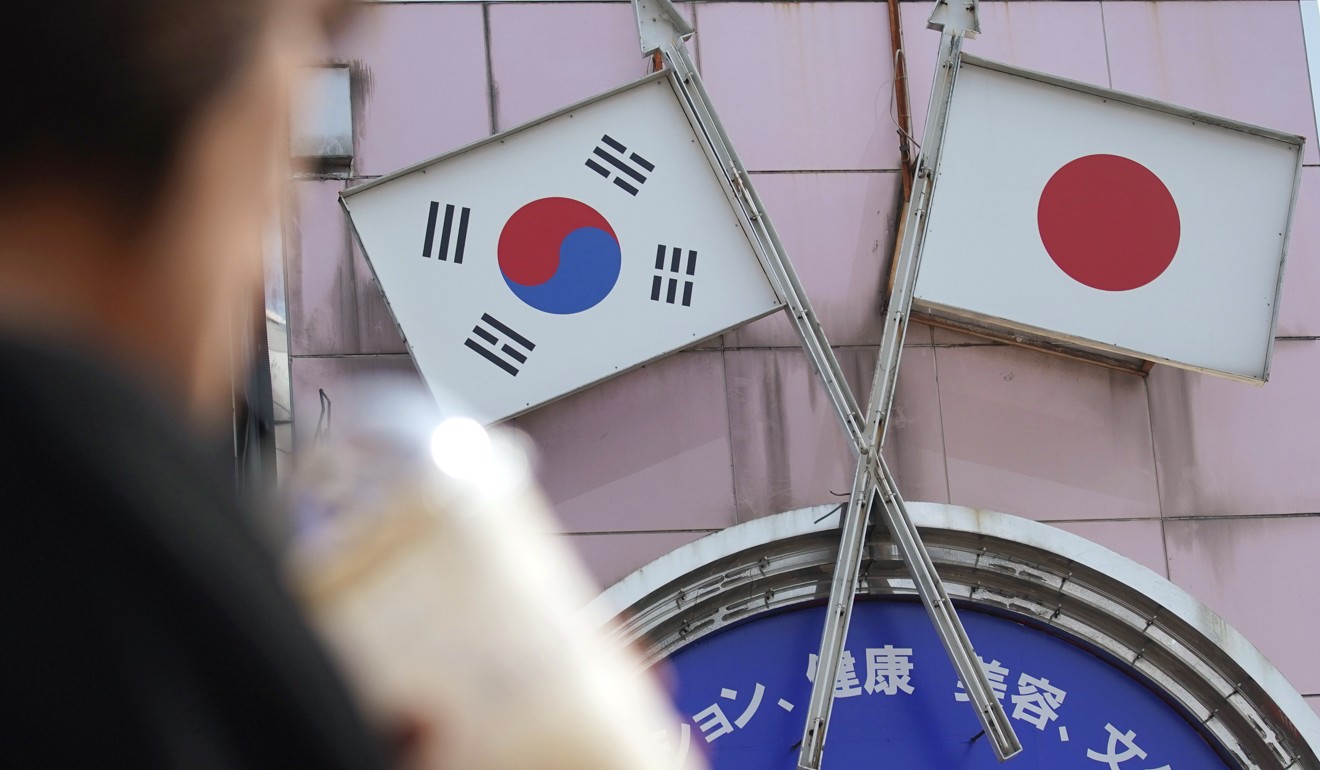
South Korea is the first country ever to be dropped from Tokyo’s list of nations granted minimal constraints on exports of products, which analysts say could affect hundreds of key items imported to the South.
Friday’s decision followed Tokyo’s announcement in early July that it would place tough restrictions on exports of chemicals vital to Seoul’s world-leading chip and smartphone industry.
“This is an economic invasion that attacks the vital point of our economy,” said Park Seok-woon, president of the Korea Alliance for Progressive Movement.
Explained: what’s driving Japan’s escalating feud with South Korea?
Fighting it amounted to “South Korea’s second independence movement” against Japan, he said.
The relationship between the two nations has been strained for decades as a result of Tokyo’s brutal 1910-45 colonial rule over the Korean peninsula.
A series of rulings since last year by South Korean courts ordering Japanese firms that used wartime forced labour to compensate victims – an issue Tokyo insists was settled by a 1965 treaty – have further soured ties.
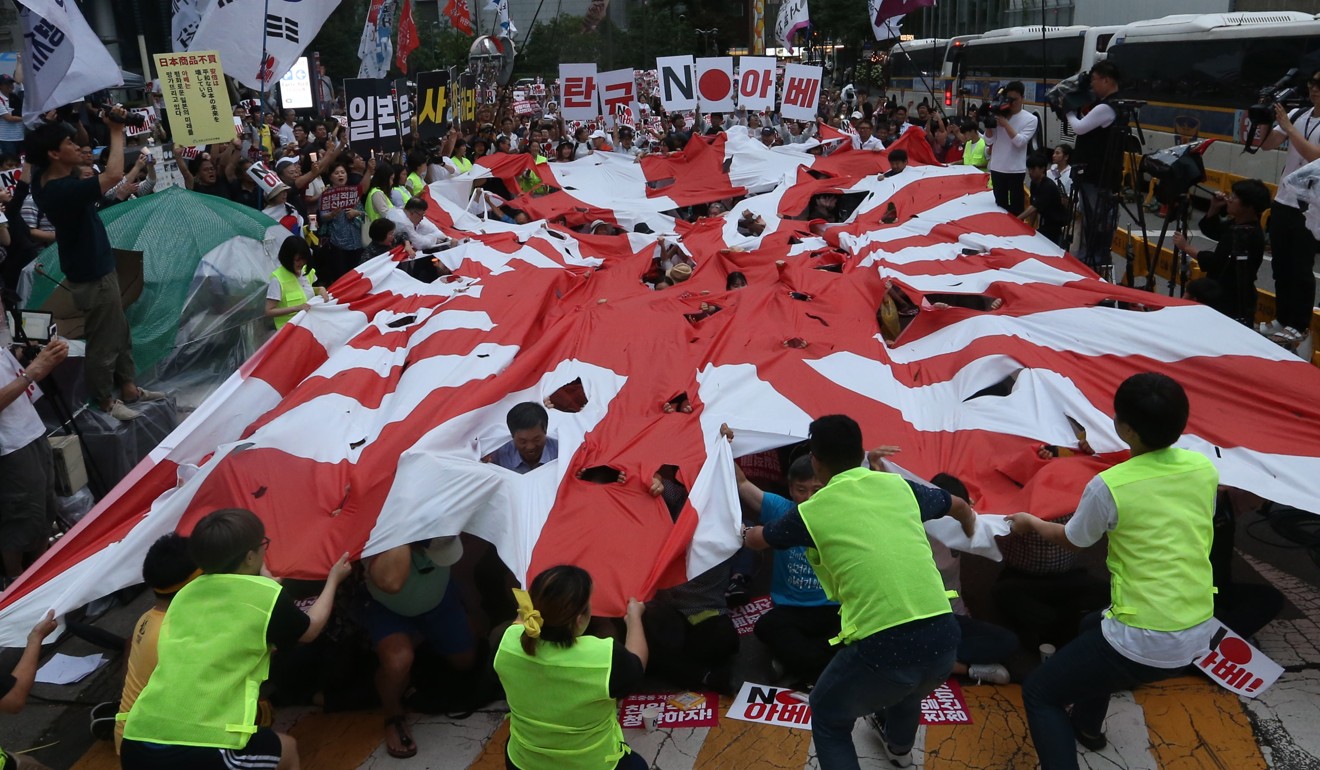
Many Koreans remain bitterly resentful over the past, even going back centuries.
“I feel that Japan has always been the same since the Japanese invasions of Korea in 1592,” Cho Hyun-joo, president of the Seoul Young Korean Academy NGO.
“They’ve always, always considered the Korean peninsula as a commodity and a tool for their own advancement and benefits.”
The protesters called on the South Korean government to abolish its military intelligence-sharing agreement with Japan. Known as GSOMIA, the pact enables Seoul and Tokyo – both are US allies – to share intelligence on North Korea, among others.
“If Japan cannot trust us with issues related to the economy, then it makes no sense for the two countries to trust each other on military intelligence,” said Park, who was among around 30 demonstrators at the embassy.
Additional reporting by AP, Korea Times

.png?itok=arIb17P0)

